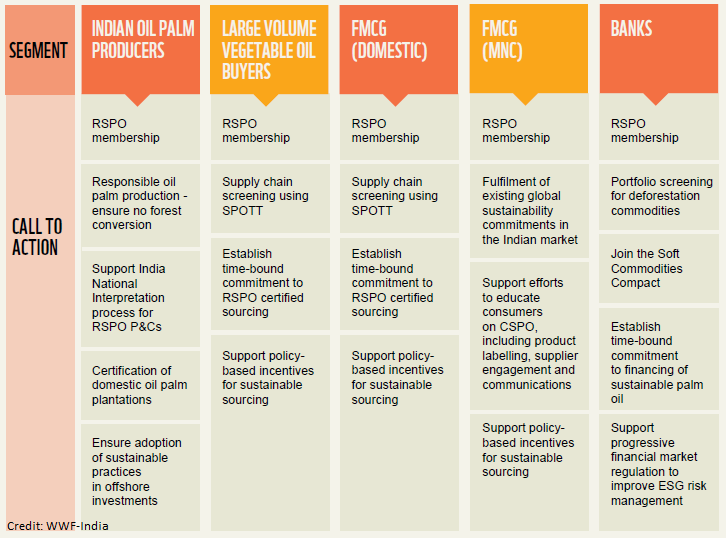India’s consumption of palm oil is the highest of any nation in the world, and the country therefore has the potential to play a significant role in driving sustainable practices.
Palm Lines, a new report by WWF-India, highlights the key role that India can play in driving improved sustainability practices in the sector, including through the use of SPOTT for supplier screening.
SPOTT assessments can be integrated into a wider sustainable supply chain strategy, in particular to identify areas of supplier risk and to frame an action plan for supply chain improvement.
Companies can use SPOTT to initiate dialogue with suppliers to understand their areas lacking transparency and rapidly screen for exceptionally poor performers.
By informing potential customers about the sustainability commitments of palm oil producers, SPOTT helps buyers meet their own commitments, supporting and incentivising sustainable production.
The report highlights actions that key industry players – including producers, buyers, consumer goods manufacturers and banks – can take to drive the sustainability agenda in palm oil, summarised in the table below.

